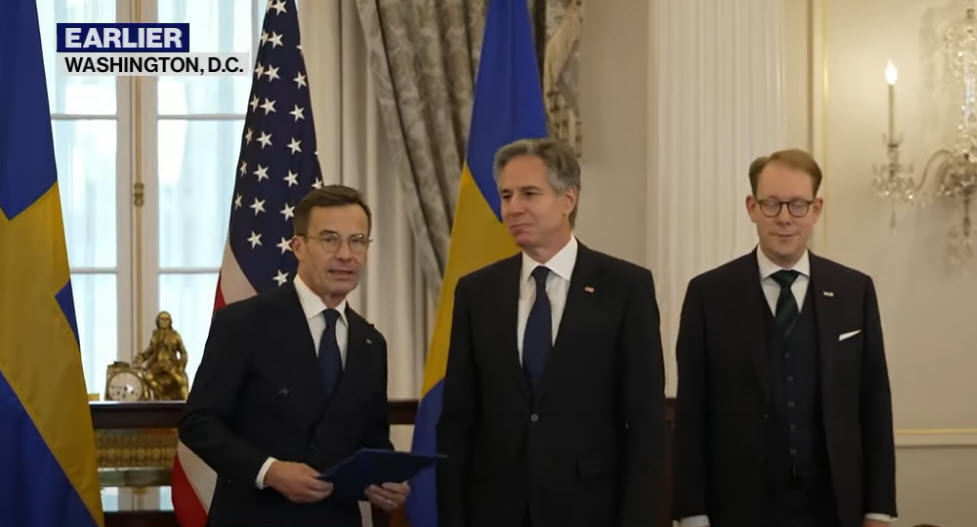In a historic move, Sweden has officially become a member of NATO, solidifying its commitment to regional security amidst escalating tensions in Eastern Europe. The formal documentation for Sweden’s NATO membership was presented by the country’s prime minister during a ceremony in Washington, D.C., attended by Secretary of State Antony Blinken. The decision to join NATO reflects Sweden’s strategic response to the evolving geopolitical landscape, particularly in the wake of Russia’s invasion of Ukraine.
Sweden’s prime minister visited Washington, D.C. on Thursday to complete the necessary formalities for the country’s admission to NATO. The ceremony, attended by Secretary of State Antony Blinken, marked a significant moment in Sweden’s foreign policy, emphasizing a shift toward a closer alliance with the transatlantic military alliance.
During the induction ceremony, Secretary of State Antony Blinken highlighted the changing dynamics in global security following Russia’s invasion of Ukraine. Blinken noted that the events in Ukraine prompted Sweden to reassess its security posture, recognizing the potential threat posed by Russia. The decision to join NATO is seen as a proactive measure by Sweden to enhance its defense capabilities and align itself with a collective security framework.
The inclusion of Sweden in NATO is part of the alliance’s most substantial expansion in decades. This move comes in tandem with Finland, further strengthening the Northern European region’s commitment to collective defense. The decision reflects a shared understanding among Nordic countries of the evolving security challenges and the need for collaborative efforts to address them effectively.
To mark Sweden’s formal entry into NATO, the alliance’s headquarters in Brussels is expected to fly the Swedish flag on Monday. This symbolic gesture signifies the integration of Sweden into the NATO community and emphasizes the collective responsibility of member nations to ensure regional and global security.
The prime minister of Sweden acknowledged the gravity of the security situation, noting that the region has not witnessed such challenges in decades. The decision to join NATO is framed as a response to a shifting geopolitical landscape, with an emphasis on fostering regional stability and security cooperation.
Sweden’s official entry into NATO marks a transformative moment in the geopolitical landscape of Northern Europe. The decision reflects the collective response of Nordic countries to the changing security dynamics in the aftermath of Russia’s invasion of Ukraine. As Sweden strengthens its ties with NATO, the alliance expands its influence, contributing to a unified front in addressing the complex security challenges of the 21st century.



